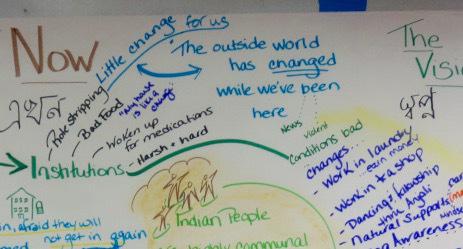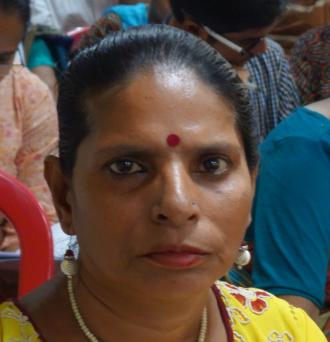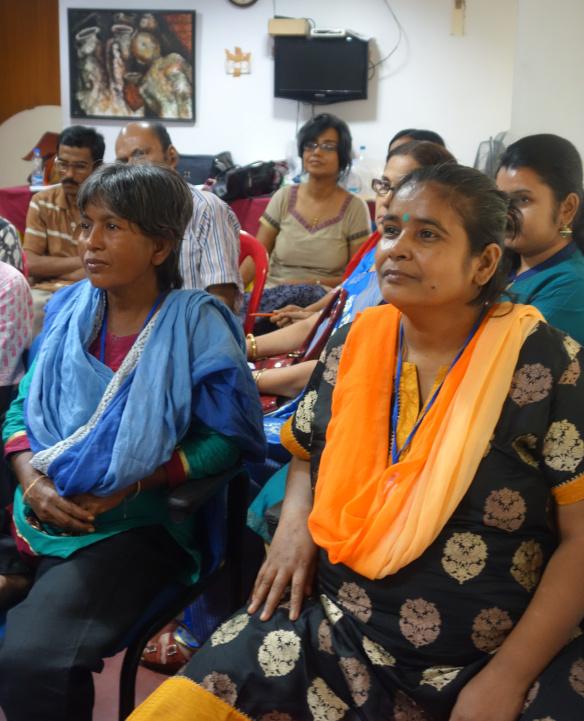Questions (and Answers) That Matter When Developing an Inclusive Society
Great Questions, Answers That Matter
“A great question refuses to be answered; so it keeps leading us into deeper connections with each other & into deeper thinking.”
– Judith Snow
Change agent, activist and friend Judith Snow once said this, and it immediately captured my imagination at the time. Over the years, it has become a powerful tool of practice for me. A rich set of questions can yield immense wisdom when asked of many people, with a genuine curiosity at the core of the asking.
When we first began to think about the work that needs doing in India around disability and equity, and there came an opportunity to do a part of that work, it seemed wise to begin with some important questions that will add richness to the understanding of both the “asker” and the “asked”.
And so has our work begun, not with answers but with 4 simple questions. These questions are being asked in 45 participatory sessions being held across India, and they are being asked of families, people with lived experience of disability, professionals, and everyday Indian people who might be described as community members. The answers to the questions are respected, recorded, captured, and shared back. They also begin to fill out the tapestry before we can ask other questions, the very first questions of service design, “Who are the people?” and “What do they need?”
The four questions which are grounding our work include the past, the present, the future, and the action. Each has profound importance. One cannot know where one is going unless one knows where one has been. One cannot establish a vision without an acknowledgement of the present. One cannot formulate action without sensing a sharp tension between what is “now” and what “should be”. A discomfort and even chafing at the conditions of today propels us towards a future in strong ways.
The answers are compelling, profound, diverse, and slowly painting a picture of life, hope, change, and possibility, while acknowledging the hard and faithful work that needs to be done.
When we have asked these questions 45 different times, among 45 diverse groups of people gathered in meeting rooms, offices, conference rooms, and wherever people can carve out a space, we will pull together these expressions of pain, knowledge, wisdom, hope, and, yes, direction, into a single snapshot which will boil down this work into one rich view. This informs the work of Keystone Institute India, can inform the work of many others, and will in some sense cause change simply by having asked elegant questions that echo in people’s minds and hearts for a long time.
“What is the HISTORY of people with disability – in your society, your neighborhood, your community, your family, your life?”
“How are things NOW?”
“What is the VISION for the future?”
“What ACTION must be taken to make that vision a reality?”
One of the most profound moments came for me, as a facilitator, when 12 men and women, all currently institutionalized in government mental hospitals for decades, came to a session and told us of their realities. One man simply stated, “While we have been here for 15 years, the world has changed, but we have not changed at all”. This observation brought a hush to the room, as all 35 strong of us realized that one of the profound impacts of segregation are the discontinuities with the outside world which get created. Everyone in the room- professionals, families, and others were immediately able to feel the visceral impact of what it means to be rendered an alien in your own culture through having been separated in a timeless, changeless world where you are frozen in time. If we want to do right by people, listening to their experiences of the past, present, and future matters a great deal. Listening is a part of the process, and it may be a part of the solution to the problems of discrimination, marginalization, and oppression as well.







